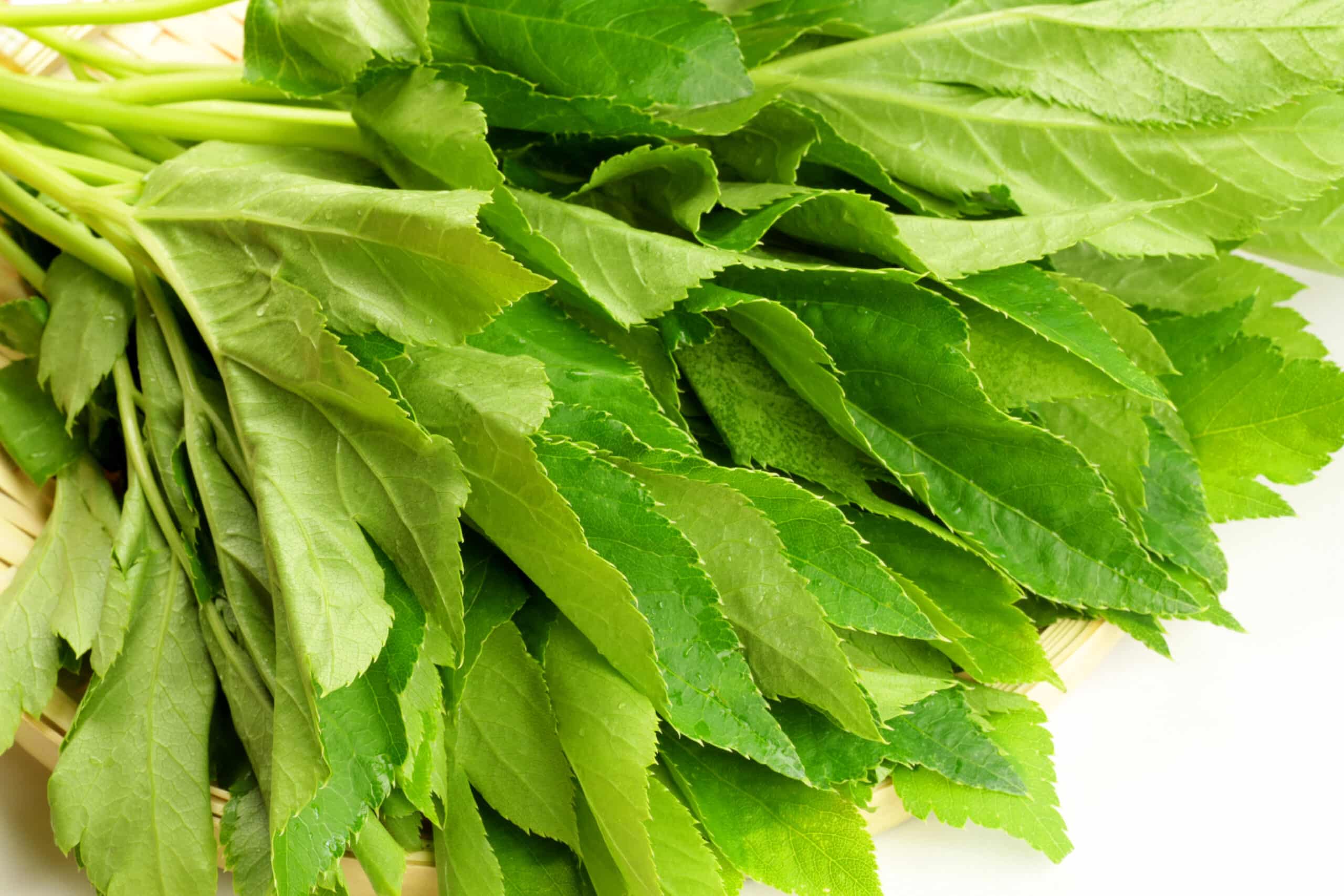This herb native to Japan has been shown by modern science to have health benefits, and according to a recent study ashitaba contains a compound that can help to boost cellular regeneration and prevent aging.
Ashitaba has been found to contain 4,4-dimethoxychalcone which enhances autophagy. “This is a cleansing and recycling process,” explained Frank Madeo, one of the authors of the study and a professor at the University of Graz in Austria. Autophagy is a cleansing process that helps sustain good health by removing cells’s damaged parts that can accumulate and lead to cancer.
Intermittent fasting and exercise are believed to cause autophagy, to investigate other methods of inducing this beneficial process the team examined plants focussing on flavonoids which have antioxidant and anti-inflammatory properties that protect against cancer, brain degeneration, and other diseases.
180 types of flavonoids were screened to determine which ones may have the ability to counteract age related cell death; DMC was selected as a candidate and experiments were conducted on yeast cells. Initial results showed the compound to protect against the effects of aging, and it performed better than other compounds such as resveratrol. When tested on worms and fruit flies the same results were yielded.
“Remarkably, chronic DMC treatment… prolonged the median lifespan of both model organisms by approximately 20 percent,” the researchers wrote in their study, which was published in the journal Nature Communications.
Further study using mouse heart cells to test the effects of DMC obtained consistent results along with those from the previous studies showing the compound to protect cells via autophagy, and it prevented lived damage caused by ethanol; additional testing showed that DMC protected different types of human cells and slowed the aging process.
“The experiments indicate that the effects of DMC might be transferable to humans, although we have to be cautious and wait for real clinical trials,” said Madeo, although he added that more studies are needed to determine whether DMC can protect against age-related diseases.
Ashitaba belongs to the carrot family, it is used extensively in culinary preparations, and its stems, roots, and leaves are edible.
For now, aging may be an inevitable part of life, but there are steps that can be taken to help reduce the signs of aging and decrease the risk of age related diseases. Exercise on a regular basis can help prevent age related conditions such as cardiovascular disease and muscle degeneration, and following a healthy balanced diet will provide the body with the nutrients needed to fight of diseases. Incorporating ashitaba into meals may be another way to help improve cellular regeneration and slow down cell aging, findings suggest it may be worth adding to your anti-aging arsenal.




